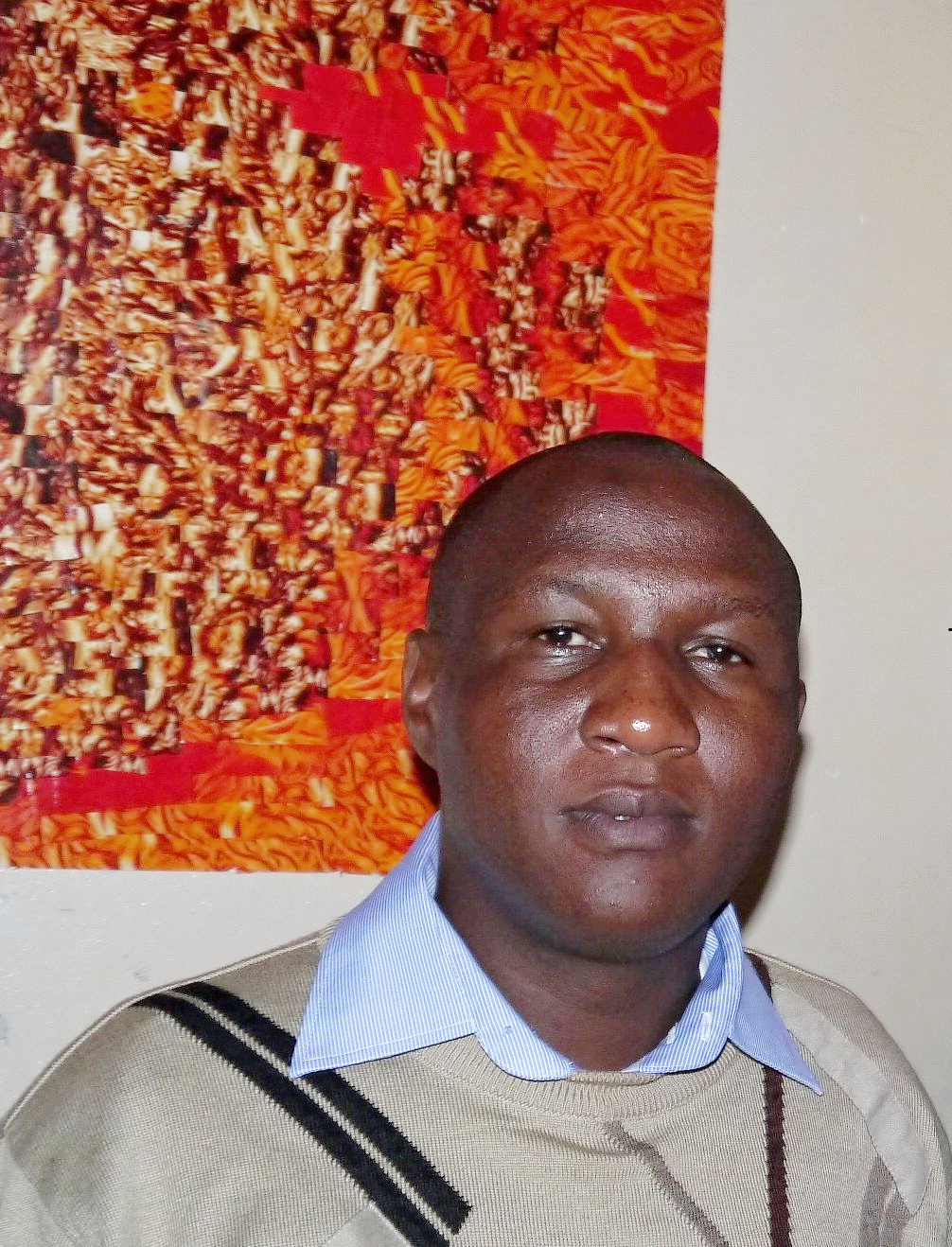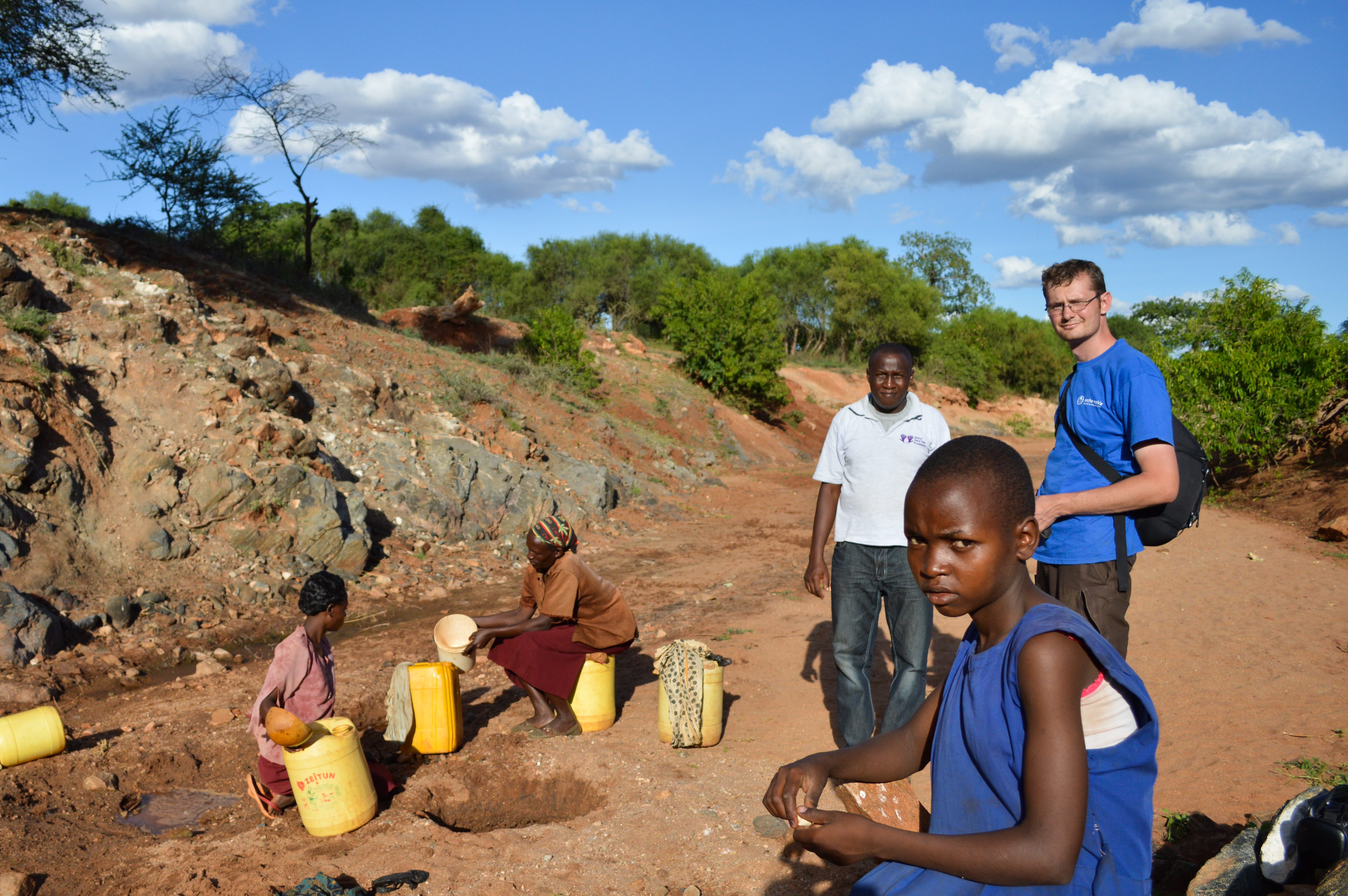Cornelius Kyalo Matheka is a man of conviction. He also could live along with his wife and children in Nairobi and persue his career. But he decided otherwise. That’s why he sees his family only on weekends. Most of the time he is in Mtito Andei in Makueni County, where he founded the Africa Sand Dam Foundation in 2010, to secure the access to water for the surrounding villages. Since 2012 ASDF is a partner of arche noVa.
“I grew up here and understand the challenges the local farmers are facing”, he tells us. Makueni County is one of the driest regions of Kenia. “Often people have to walk for long distances to get to the water sources. There and back it takes up to 12 hours.” Cornelius Kyalo Matheka regards this as a waste of time, besides the violation of human rights. “Somebody who is on the route to the next waterhole can’t work on his farm, doesn’t earn enough money, even less for the school fees for his children.”
The water crisis in the villages has to be immediately solved, warns the ASDF managing director. Then the problems are amassing. “The temperatures have risen in Kenia. The rain seasons don’t come like they used to. And when it rains, it’s raining way more than before. But in total the days of rainfall are getting rare.”
Facing climate change day by day
Cornelius Kyalo Matheka knows the studies about climate change and can confirm it with own eyes: The grazing land is becoming smaller. The livelihoods of the people are endangered. “Nearly every year cattle farmers are forced to look for new locations for water and grasslands, which often leads to conflicts in the villages.”
Despite the difficulties Cornelius continues to fight for an improvement of the situation. Only when the conversation meets politics, the usually very polite man becomes enraged: “While politicians talk and talk and need ages to fulfill their promises, people in countries like Kenia are already suffering under the effects of climate change. We know that the reason why the developed nations need so long to keep their promises, is not juristic matters, but the lack of political will.”














